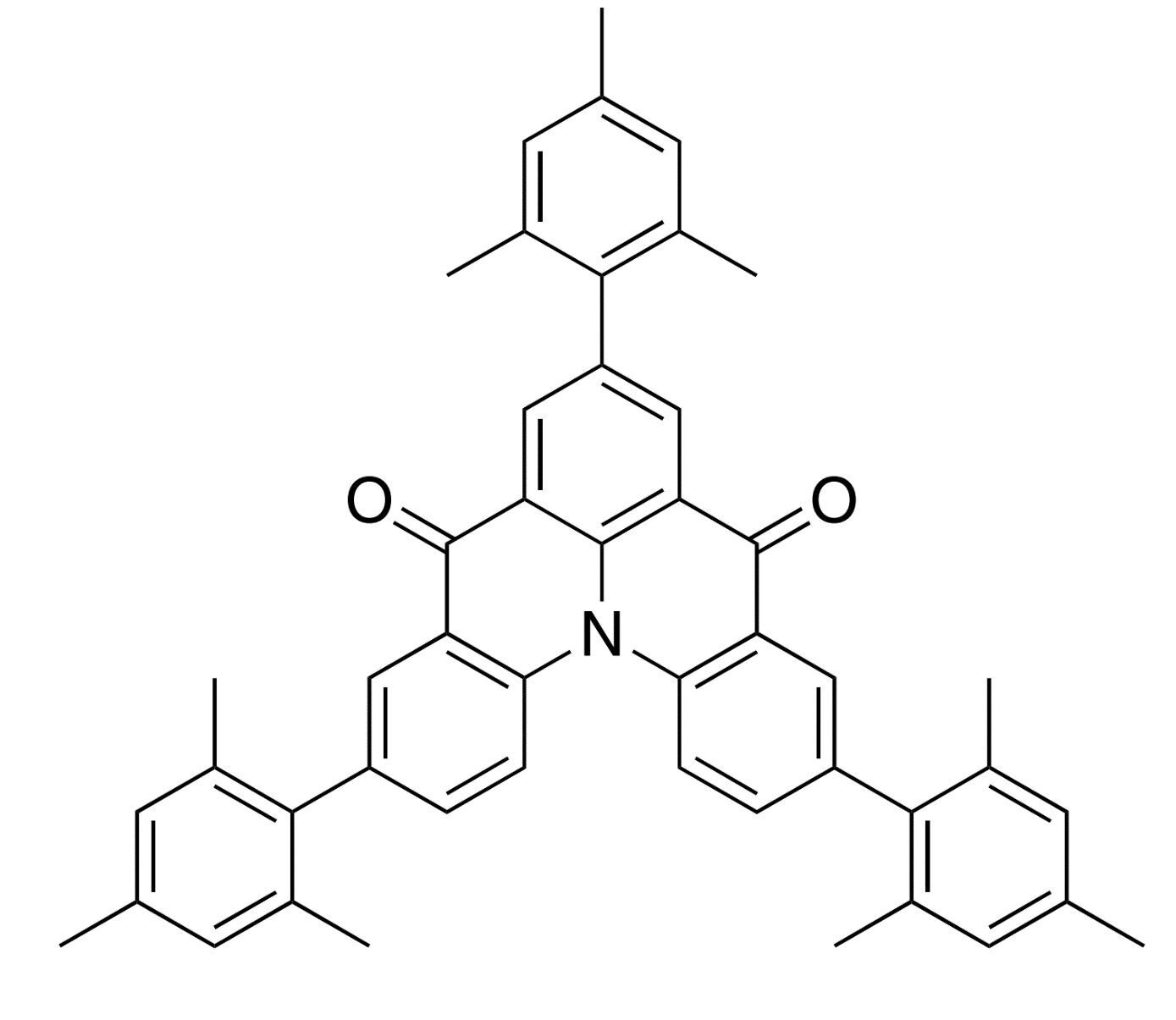Mes3DiKTa
Product Description
Mes3DiKTa, or 3,7,11-Trimesitylquinolino[3,2,1-de]acridine-5,9-dione, is a complex organic compound designed for its unique electronic and optical properties. It features a quinolinoacridinedione core substituted with trimesityl groups, which enhance its electron-accepting capability and thermal stability. This molecular architecture positions Mes3DiKTa as a promising material in the development of organic electronic devices, where its ability to efficiently transport electrons and exhibit luminescence is crucial. The trimesityl substituents not only facilitate efficient charge transport but also contribute to the compound's overall stability, making it suitable for applications in harsh environments.
Application
Mes3DiKTa is primarily targeted at improving the performance of Organic Field Effect Transistors (OFETs) and Organic Light Emitting Diodes (OLEDs), where its electron-accepting properties and thermal stability offer advantages in device performance and reliability. Its structure also enables the formation of thin films, aiding in the manufacturing process of these devices. Additionally, the compound's luminescent properties suggest potential applications in lighting technologies and displays, where its ability to emit light upon electrical excitation can be leveraged for signaling or illumination purposes. The versatility and performance of Mes3DiKTa highlight its importance in advancing the field of organic materials science and electronics.
Articles:
- Recent advances in organic luminescent materials with narrowband emission
Publication Date: 16 July 2021
Jung Min Ha, Seon Hyoung Hur, Ambika Pathak, Ji-Eun Jeong & Han Young Woo
https://doi.org/10.1038/s41427-021-00318-8
- Recent progress of narrowband TADF emitters and their applications in OLEDs
Publication Date: 23 Jul 2020
Jin-Ming Teng, Yin-Feng Wang and Chuan-Feng Chen
